words
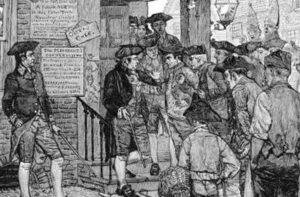
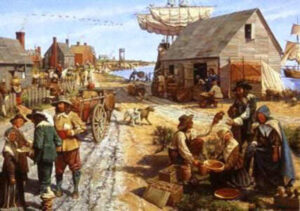 If you travel to a different area of the country or even other English-speaking areas of the world, you will find that here are different accents and even that words are used differently. Still, just because you are visiting or move to those places, doesn’t mean that you will immediately take on those accents, or their use of words. Nevertheless, when you move to a different region, your use of the language does immediately begin to evolve, whether you realize it or not, and whether it is intentional or not. The first Englishmen to set foot on American soil with the intent to colonize the land were no exception. The language began to evolve almost immediately….and it remains a fluid, almost living process to this day. “Americanisms” have been created or changed from other English terms to produce a language that very much differs from our forefathers, signifying our uniqueness and independence.
If you travel to a different area of the country or even other English-speaking areas of the world, you will find that here are different accents and even that words are used differently. Still, just because you are visiting or move to those places, doesn’t mean that you will immediately take on those accents, or their use of words. Nevertheless, when you move to a different region, your use of the language does immediately begin to evolve, whether you realize it or not, and whether it is intentional or not. The first Englishmen to set foot on American soil with the intent to colonize the land were no exception. The language began to evolve almost immediately….and it remains a fluid, almost living process to this day. “Americanisms” have been created or changed from other English terms to produce a language that very much differs from our forefathers, signifying our uniqueness and independence.
Of course, the people didn’t notice the changes right away, but by 1720, the English colonists began to notice that their language was quite different from that spoken in their Motherland. I’m sure they wondered just how that came to be? Basically, when you hear new “slang” words, and people don’t hear the accents spoken as well, the whole dynamic of the language changes. Also, very formal words like “thee, thou, and such” might become too cumbersome and so they are discarded. Everyone in the colonies knew that English would be our native language by 1790, because when the United States took its first census, there were four million Americans, 90% of whom were descendants of English colonists. So, it made perfect sense.
Nevertheless, it would not be the same as that spoken in Great Britain. The reasons are varied, but the most obvious reason was the sheer distance from England. The main way the language evolved was that over the years, many words were borrowed from the Native Americans, as well as other immigrants from France, Germany, Spain, and other countries. In addition, words that became obsolete “across the pond” continued to be utilized in the colonies. In other cases, words simply had to be created in order to explain the unfamiliar landscape, weather, animals, plants, and living conditions that these early pioneers encountered. By 1790 it was obvious that American English would be a very different language that British English.
The first “official” reference to the “American dialect” was made in 1756 by Samuel Johnson, a year after he published his Dictionary of the English Language. Johnson’s use of the term “American dialect” was not meant to simply explain the differences but rather, was intended as an insult. This “new” language was called “barbarous” and referred to our “Americanisms” as barbarisms. Because of the dissention between England and the Colonies, the British sneering at our language continued for more than a century after the Revolutionary War. They laughed and condemned as unnecessary, hundreds of American terms and phrases, but to our newly independent Americans, they were proud of their “new” American language and considered it to be another badge of independence. In 1789, Noah Webster wrote in his Dissertations on the English Language, “The reasons for American English being different than English English are simple…As an independent nation, our honor requires us to have a system of our own, in language as well as government.” In the eyes of the Colonists, that settled the matter, and when the United States was formed, the new nation was proud to be separated for the “Motherland” and would have it no other way.
Our leaders, including Thomas Jefferson and Benjamin Rush, agreed — it was not only good politics, but it was also sensible. The most atrocious changes to the British were the heavy use of contractions such as ain’t, can’t, don’t, and couldn’t. The feelings of the “rest of the world” didn’t matter to Americans, and the language changed even more during the western movement as numerous Native American and Spanish words became an everyday part of our language. The evolution of the American language continued into the 20th century and really continues even to this day. After World War I, when Americans were in a patriotic and anti-foreign mood, the state of Illinois went so far as to pass an act making the official language of the state the “American language.” In 1923, in the State of Illinois General Assembly, they passed the act stating in part, “The official language of the State of Illinois shall be known hereafter as the ‘American’ language and not as the ‘English’ 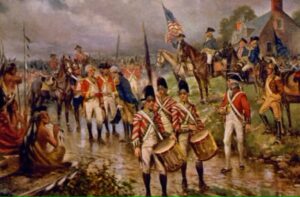
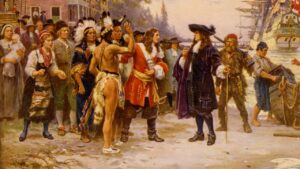 language. A similar bill was also introduced in the US House of Representatives the same year but died in committee. Ironically, after centuries of forming our ‘own’ language, the English and American versions are once again beginning to blend as movies, songs, electronics, and global traveling bring the two ‘languages’ closer together.”
language. A similar bill was also introduced in the US House of Representatives the same year but died in committee. Ironically, after centuries of forming our ‘own’ language, the English and American versions are once again beginning to blend as movies, songs, electronics, and global traveling bring the two ‘languages’ closer together.”
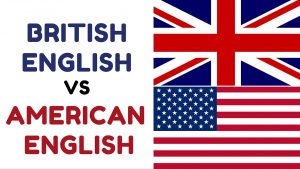 When the colonists left England to form America, they were like the younger sibling, at least when it came to language and much of how they ran the country. Nevertheless, like that younger sibling, things began to change pretty quickly. Part of the change was due simply to distance. When you don’t hear a language all the time, you begin to vary in your own speech. I didn’t really realize there was such a difference between American English and British English, other than the accent of course. Still, I noticed that more and more forms were asking which of the two I spoke. I always thought that it was an odd question, because English is English…right? Well, the correct answer is…wrong!! And when I thought about it, I knew that to be true.
When the colonists left England to form America, they were like the younger sibling, at least when it came to language and much of how they ran the country. Nevertheless, like that younger sibling, things began to change pretty quickly. Part of the change was due simply to distance. When you don’t hear a language all the time, you begin to vary in your own speech. I didn’t really realize there was such a difference between American English and British English, other than the accent of course. Still, I noticed that more and more forms were asking which of the two I spoke. I always thought that it was an odd question, because English is English…right? Well, the correct answer is…wrong!! And when I thought about it, I knew that to be true.
The changes began almost immediately after the first Englishman set foot on American soil. It all started with “Americanisms.” These “Americanisms” have been created or changed from other English terms to produce a language that differs from our forefathers, signifying our uniqueness and independence. I’m sure our founders were rather pleased with themselves with this process, if they realized it at all. By the time of the first United States census, in 1790, there were four million Americans, 90% of whom were descendants of English colonists. When I think of the speed of that growth, it strikes me as phenomenal to say the least. Because of the large English background, there was no question that our official native language would be “English,” but it would not be the same as that spoken in Great Britain. “Americanism” means a word or expression that originated in the United States. The term includes outright coinages and foreign borrowings which first became “English” in the United States, as well as older terms used in new senses first given them in American usage.
In fact, by 1720, the colonists knew that we did not speak the same language as the people in England. The most obvious reason was, of course, the sheer distance from England. Nevertheless, that was not the only 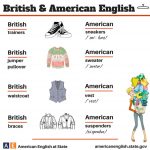 reason. Over the years, many words were borrowed from the Native Americans, as well as other immigrants from France, Germany, Spain, and other countries. We had to communicate with the people around us too, and other words that became obsolete “across the pond,” continued to be utilized in the colonies. In other cases, words simply had to be created in order to explain the unfamiliar landscape, weather, animals, plants, and living conditions that these early pioneers encountered. These things might not have existed in England.
reason. Over the years, many words were borrowed from the Native Americans, as well as other immigrants from France, Germany, Spain, and other countries. We had to communicate with the people around us too, and other words that became obsolete “across the pond,” continued to be utilized in the colonies. In other cases, words simply had to be created in order to explain the unfamiliar landscape, weather, animals, plants, and living conditions that these early pioneers encountered. These things might not have existed in England.
By 1756, the English would make the first “official” reference to the “American dialect.” Samuel Johnson made note of it a year after he published his Dictionary of the English Language. Johnson’s use of the term “American dialect” was not meant to simply explain the differences, but rather, was intended as an insult. It was rather like calling our language the “low class” version of the English language. Remember if you will, that there were those who did not think the United States should ever be a sovereign nation. Years earlier…as early as 1735, the English were calling our language “barbarous,” and referred to our “Americanisms” as barbarisms. The English sneered at our language, something that continued for more than a century after the Revolutionary War, as they laughed and condemned as unnecessary, hundreds of American terms and phrases.
Our newly independent Americans, were proud of their “new” American language, wearing it, as a badge of independence. In 1789, Noah Webster wrote in his Dissertations on the English Language: “The reasons for American English being different than English English are simple: As an independent nation, our honor requires us to have a system of our own, in language as well as government.” Our leaders, including Thomas Jefferson and Benjamin Rush, agreed. It was not only good politics, it was sensible. The feelings of the “rest of the world” didn’t matter. The language changed even more during the western movement as Native American and 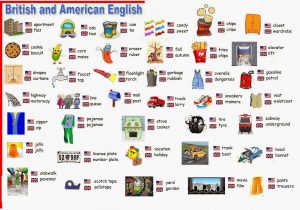 Spanish words became a part of our language.
Spanish words became a part of our language.
In 1923, the State of Illinois General Assembly, passed the act stating in part: “The official language of the State of Illinois shall be known hereafter as the “American” language and not as the “English” language.” A similar bill was also introduced in the U.S. House of Representatives the same year but died in committee. Now, after centuries of forming our “own” language, the English and American versions are once again beginning to blend as movies, songs, electronics, and global traveling bring the two “languages” closer together once again.
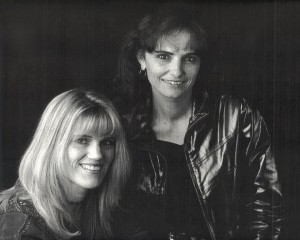 It all started in the late 1990s, in church. That was when two girls, my cousin, Julie Carlson Soukup and her friend, Melody Cox sang together, and found out that they had a God given musical bond. They found that Julie’s words combined with and complimented Melody’s music. Before long they had put together enough songs to record an album. In 1999, Crush Girls was born when the girls recorded their first album, Broken Dove, at Inland Sea Studios in nearby Superior, Wisconsin.
It all started in the late 1990s, in church. That was when two girls, my cousin, Julie Carlson Soukup and her friend, Melody Cox sang together, and found out that they had a God given musical bond. They found that Julie’s words combined with and complimented Melody’s music. Before long they had put together enough songs to record an album. In 1999, Crush Girls was born when the girls recorded their first album, Broken Dove, at Inland Sea Studios in nearby Superior, Wisconsin.
Julie and Melody knew that they had something special, but that’s not enough to grab the attention of the masses. For that you have to be extraordinary. That’s what Julie and Melody were…extraordinary. Before long Crush Girls had built a level of notoriety that allowed them to perform “some very cool gigs” as Melody would say. They played for the Governor of Minnesota, Jesse Ventura and his staff in a formal setting, and then the staff stayed to continue to enjoy the music around a campfire after the governor and his wife went to bed. They played during 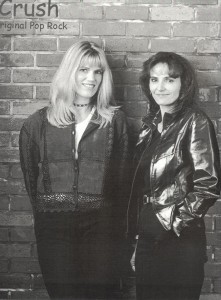 the Blue Angels Show in Duluth, Minnesota, the Harley Davidson Multiple Sclerosis Charity, and the Great American Heartwalk. They had a standing engagement as the house concert group for several months at Giant’s Ridge Golf and Ski Resort, as well as well as regular engagements around the Duluth area, including the Homegrown Festival. Their music continued to grow, and the girls recorded a couple of demos back at the Inland Sea Studios, including headlining song Candy Kisses, which became a crowd favorite.
the Blue Angels Show in Duluth, Minnesota, the Harley Davidson Multiple Sclerosis Charity, and the Great American Heartwalk. They had a standing engagement as the house concert group for several months at Giant’s Ridge Golf and Ski Resort, as well as well as regular engagements around the Duluth area, including the Homegrown Festival. Their music continued to grow, and the girls recorded a couple of demos back at the Inland Sea Studios, including headlining song Candy Kisses, which became a crowd favorite.
As with most things, time stepped in and the girls’ took different paths for a time…a time which Melody called “Crush, the Dark Years.” Nevertheless, she says that Julie and their music were certainly never far from her mind. Melody missed Julie and their musical “children.” She continued to play gigs and always included songs from Crush Girls in the set list. Then, time stepped in again and the music resonated in Julie again. The girls reconnected and have been writing again, but on a deeper and more sincere level. The girls still live a few hundred miles apart…Julie in Duluth, Minnesota and Melody in Asheville, North Carolina, but Melody says that Julie will always be her heart’s twin, with the first cut of their Broken Dove album, I Begin In You as their core. She truly believes that their music will continue and will find a way, and I think determination will bring it to pass.
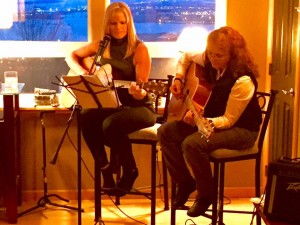
I tend to agree with Melody, because I don’t think Crush Girls are over. Their latest song, Shores Evermore is the expression of the music finding a way. They are making plans to take some time to step back into the studio. As Melody says, “Much more is stirring in the Crush breeze! So stay tuned ~ more Crush songs are coming!” Having taken the time to listen to some of their songs, I can tell you that each and every one is worth waiting for. I think God certainly knew what He was doing when He joined these two musical hearts together. I hope they will indeed find a way to make more of their music, because I think a lot of people would really enjoy it if they did.
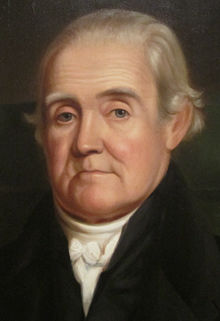 I don’t think that we spend very much time considering the importance of words in our lives, and yet, they are a vital part of our lives. Whether we speak the words, sign the words, write the words, or type the words, words are a vital part of communication. We are isolated without them, and we are indeed, isolated when we don’t understand them or know their meaning. When the United States was first formed…a melting pot of people from different countries…all with different languages. Communication under those circumstances if difficult at best, and often impossible. People tend to stick to their own family and friends from their country, so they can talk to each other. Eventually, through trial and error, people began to learn the chosen language of the United States…English.
I don’t think that we spend very much time considering the importance of words in our lives, and yet, they are a vital part of our lives. Whether we speak the words, sign the words, write the words, or type the words, words are a vital part of communication. We are isolated without them, and we are indeed, isolated when we don’t understand them or know their meaning. When the United States was first formed…a melting pot of people from different countries…all with different languages. Communication under those circumstances if difficult at best, and often impossible. People tend to stick to their own family and friends from their country, so they can talk to each other. Eventually, through trial and error, people began to learn the chosen language of the United States…English.
Still, there are many words, and if you don’t know their meaning, or don’t know how to spell them, communication again becomes stalled, and isolation sets in. I think that might have been what Noah Webster had in mind, when he decided to publish his American Dictionary of the English Language. Noah Webster was a Yale educated attorney who had a huge interest language and education. He decided that people needed a way to learn to speak better, to know the meanings of words, and to know how to spell them, so on this day in 1818, he published his first dictionary. His dictionary was unique in that it was one of the first lexicons to include distinctly American words. Over the years, it has had to be changed, simply because as new things are invented, there have to be words invented to describe them. That makes the dictionary an ever changing book that would need to be updated often.
Noah’s dictionary took more that two decades to complete, and in it were 10,000 “Americanisms”…words that 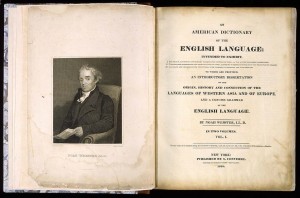 were unique to America. The dictionary standardized English spelling, a process that started as early as 1473, when printer William Caxton published the first book printed in English. The fact that dictionaries were printed so quickly and dictionaries were updated so often, resulted in increasingly standardized spellings by the mid 1800s. Coincidentally, Samuel Johnson’s Dictionary of the English Language was published almost exactly 63 years earlier, on April 15, 1755. Nevertheless, Webster’s dictionary quickly became the standard, and without it, the English language would not be the amazing language it is today. I never really gave much thought to language or words in general, until I began writing on a regular basis, and discovered my love of words.
were unique to America. The dictionary standardized English spelling, a process that started as early as 1473, when printer William Caxton published the first book printed in English. The fact that dictionaries were printed so quickly and dictionaries were updated so often, resulted in increasingly standardized spellings by the mid 1800s. Coincidentally, Samuel Johnson’s Dictionary of the English Language was published almost exactly 63 years earlier, on April 15, 1755. Nevertheless, Webster’s dictionary quickly became the standard, and without it, the English language would not be the amazing language it is today. I never really gave much thought to language or words in general, until I began writing on a regular basis, and discovered my love of words.
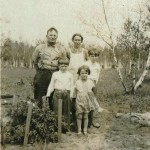 When we are young, life’s possibilities seem to be endless…it’s places are ours to explore, and ours to decide what is for us and what is not. Of course, as we get older, we realize that we don’t always have the say in where life takes us, but we can decide how we will handle what life sends our way. My dad was always one of those people who took what life handed him and made the best of it with a smile on his face and kindness in his heart. Oh, I know there are many oher people out there who, like my dad were inspiring to their friends and families, but I can only speak to what I know. Dad was always such a positive influence on all of us. He inspired us to do what was right.
When we are young, life’s possibilities seem to be endless…it’s places are ours to explore, and ours to decide what is for us and what is not. Of course, as we get older, we realize that we don’t always have the say in where life takes us, but we can decide how we will handle what life sends our way. My dad was always one of those people who took what life handed him and made the best of it with a smile on his face and kindness in his heart. Oh, I know there are many oher people out there who, like my dad were inspiring to their friends and families, but I can only speak to what I know. Dad was always such a positive influence on all of us. He inspired us to do what was right.
I have more of a tendency to be a little hot headed…difficult to believe, I know…or not, but my dad had the ability to settle me down pretty well. Yes, we debated…often called arguing by the average person…but whether I admitted it or not, I did hear the things he tried to teach me, and I think that it was probably those teachings, and the ones from my mom, that made me into the person I am today.
My parents came from humble beginnings, where money wasn’t the main focus in life. They were taught that hard work and a good attitude would always keep them on the right track. The Great Depression was a tough time for America, and they lived through those times, and their aftermath, and yet it never hindered them from doing the things they wanted to do. They saw where life was taking them, and they made that a better place. That is the kind of person I would like to be. Lifes roads are not always the easiest ones to travel, but I want to be able to make the places I pass through on that journey better than they were before I arrived.
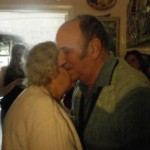
We all have to start somewhere and finish somewhere, and it isn’t about that beginning or even about the ending, but more about the in between that matters, except of course, where we will spend eternity, which I pray for all of you, will be in Heaven, where I’ll be going. Where we start is out of our control…where we finish is ours to decide, and what we do in the places that our journey takes us, is up to us. We should think about the kind of impression we will leave people with, because the things we say can have a lasting effect on the people who hear them. My dad made that in between and finish the very best, and taught his family to do the same. Missing you today, Dad. Love you!!
 Sometimes, I look at a picture, and a story seems to emerge that may or may not be reality, but it sure seems to be the case. They say a picture is worth a thousand words, but maybe pictures are made up of a thousand words. As I looked at this picture of my niece, Lacey, I could see that she had been playing dress up. The frilly blue dress, over the long sleeved T-shirt gave that away. I could also see that she had been eating something, candy or something like that, because there are spots on both dress and face that gave away her little secret.
Sometimes, I look at a picture, and a story seems to emerge that may or may not be reality, but it sure seems to be the case. They say a picture is worth a thousand words, but maybe pictures are made up of a thousand words. As I looked at this picture of my niece, Lacey, I could see that she had been playing dress up. The frilly blue dress, over the long sleeved T-shirt gave that away. I could also see that she had been eating something, candy or something like that, because there are spots on both dress and face that gave away her little secret.
What I couldn’t say for sure in this picture is whether or not she was sleeping or had she just blinked at the moment the photo was taken. I suspect though that she was not sleeping, since there seems to be a hint of a smile on her little face. She might have blinked, but it occurred to me that maybe she was playing hide and seek. That would make perfect sense to me.
When Lacey was a little girl, she used to love playing these kinds of games, and most especially dress up with her cousin Siara. They were as close as sisters or at the very least, and maybe even more so, they were best friends. It didn’t matter that they were in different grades as school…Lacey is 6 months older than Siara. They still hung out together at school and after school. They also spent the night together as much as possible, and since Siara is my sister, Cheryl’s granddaughter, they often stayed at my mom’s with Mom, Dad, and Cheryl. They always had a great time together, often well into the night, giggling 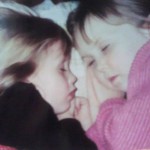 and talking in bed. Of course, that meant that getting the two of them up for church the next day was…well, a huge effort.
and talking in bed. Of course, that meant that getting the two of them up for church the next day was…well, a huge effort.
Lacey graduated last year, and Siara this year, and both are going into the next phases of their lives. Lacey is studying to be a Cosmetologist, and Siara is just starting her first year of college, and doesn’t know exactly what she wants to do yet, but I know that both these girls will be highly successful and will always make us all proud of them. No matter where life takes these girls, we will always love them very much, and we will never forget the little cuties they were…in their frilly dress up clothes and makeup.
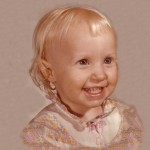 When Amy was a little girl, she had a unique way of talking. Her pediatrician said she breathed her words. Basically that meant that drink of water became ink of ata. Most of us would just call it baby talk, and so it was. She has completely grown out of those cute little baby days, but I will never forget all the cute little things she used to say.
When Amy was a little girl, she had a unique way of talking. Her pediatrician said she breathed her words. Basically that meant that drink of water became ink of ata. Most of us would just call it baby talk, and so it was. She has completely grown out of those cute little baby days, but I will never forget all the cute little things she used to say.
There was her Texan days. Instead of saying good night, Amy would say goo naaat. We used to get such a kick out of her funny little way of saying things. We called her our little Texan, which was funny in that she had never been to Texas, much less been there long enough to pick up any accent. And no one we knew had a Southern accent either. Just our Little Texan. There were quite a few of her words that came out with a Texas accent, in fact. In fact, just about any word that had an i turned into an a with Amy.
Her little accent carried over into other phrases too, like the time she told my sister, Alena that she had dot in her eye. Alena said, “You have a dot in your eye?” Amy said, “No!!! Dot!!!” Alena said, “Dot!!” And Amy said, “No!! Dot!!” Well they went on at an impasse for a while, as Alena tried desperately to figure out what Amy’s problem was. Finally in one of those forehead slapping moments, Alena said, “Ohhhhhh!! Dirt!! You have dirt in your eye!!” To which and exasperated Amy said, “Yeah, dot!!!” We have laughed and laughed about that one for years.
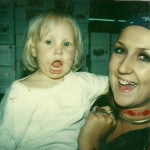
Lots of kids have funny little ways of talking baby talk, and in my opinion, they grow out of it all too soon. So many people try to move their kids out of those years into adult speech, because they are worried about the funny little way of talking being permanent. Those years just fly by, and once they are gone, you wish you had recorded the way they spoke, or at least, written down some of it, so you could remember it. Whether your little one breathed her words, or couldn’t quite get the r’s or s’s or maybe t’s, or maybe you were like us…you had a little Texan on your hands. It doesn’t matter, it’s just sooooo cute!

